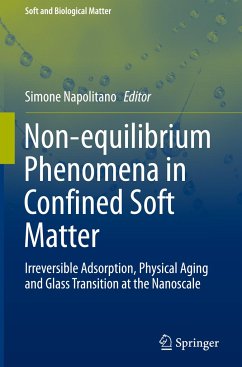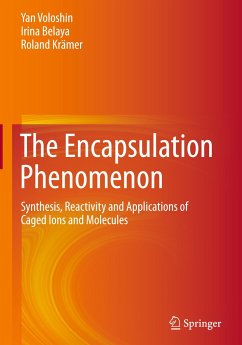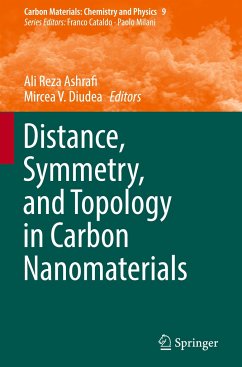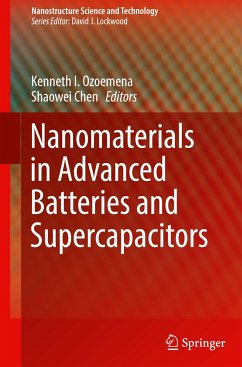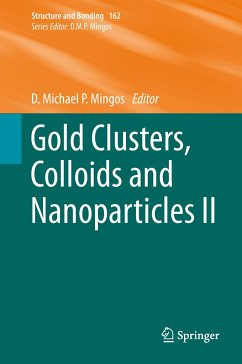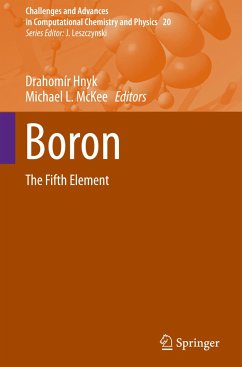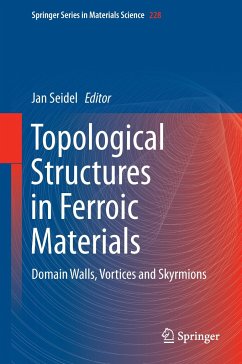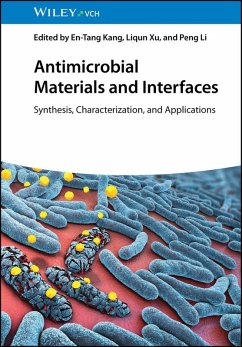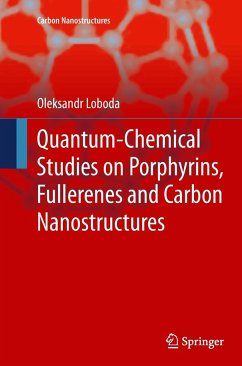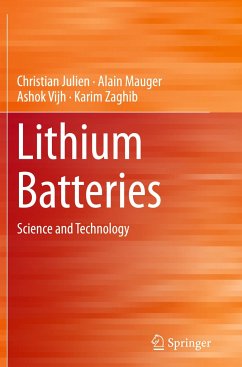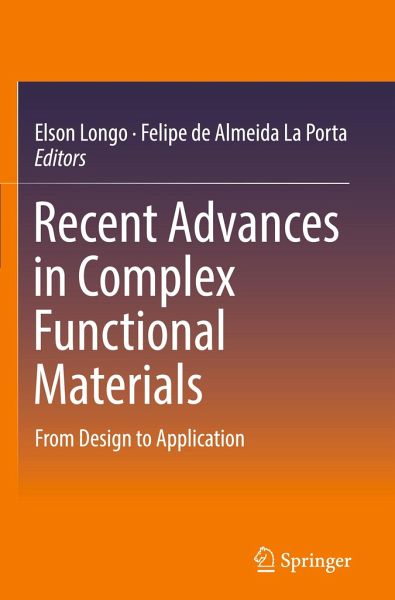
Recent Advances in Complex Functional Materials
From Design to Application
Herausgegeben: Longo, Elson; Porta, Felipe de Almeida La

PAYBACK Punkte
57 °P sammeln!
In this book we explore new approaches to understanding the physical and chemical properties of emergent complex functional materials, revealing a close relationship between their structures and properties at the molecular level.The primary focus of this book is on the ability to synthesize materials with a controlled chemical composition, a crystallographic structure, and a well-defined morphology. Special attention is also given to the interplay of theory, simulation and experimental results, in order to interconnect theoretical knowledge and experimental approaches, which can reveal new sci...
In this book we explore new approaches to understanding the physical and chemical properties of emergent complex functional materials, revealing a close relationship between their structures and properties at the molecular level.
The primary focus of this book is on the ability to synthesize materials with a controlled chemical composition, a crystallographic structure, and a well-defined morphology. Special attention is also given to the interplay of theory, simulation and experimental results, in order to interconnect theoretical knowledge and experimental approaches, which can reveal new scientific and technological directions in several fields, expanding the versatility to yield a variety of new complex materials with desirable applications and functions.
Some of the challenges and opportunities in this field are also discussed, targeting the development of new emergent complex functional materials with tailored properties to solve problems related to renewableenergy, health, and environmental sustainability.
A more fundamental understanding of the physical and chemical properties of new emergent complex functional materials is essential to achieving more substantial progress in a number of technological fields. With this goal in mind, the editors invited acknowledged specialists to contribute chapters covering a broad range of disciplines.
The primary focus of this book is on the ability to synthesize materials with a controlled chemical composition, a crystallographic structure, and a well-defined morphology. Special attention is also given to the interplay of theory, simulation and experimental results, in order to interconnect theoretical knowledge and experimental approaches, which can reveal new scientific and technological directions in several fields, expanding the versatility to yield a variety of new complex materials with desirable applications and functions.
Some of the challenges and opportunities in this field are also discussed, targeting the development of new emergent complex functional materials with tailored properties to solve problems related to renewableenergy, health, and environmental sustainability.
A more fundamental understanding of the physical and chemical properties of new emergent complex functional materials is essential to achieving more substantial progress in a number of technological fields. With this goal in mind, the editors invited acknowledged specialists to contribute chapters covering a broad range of disciplines.



